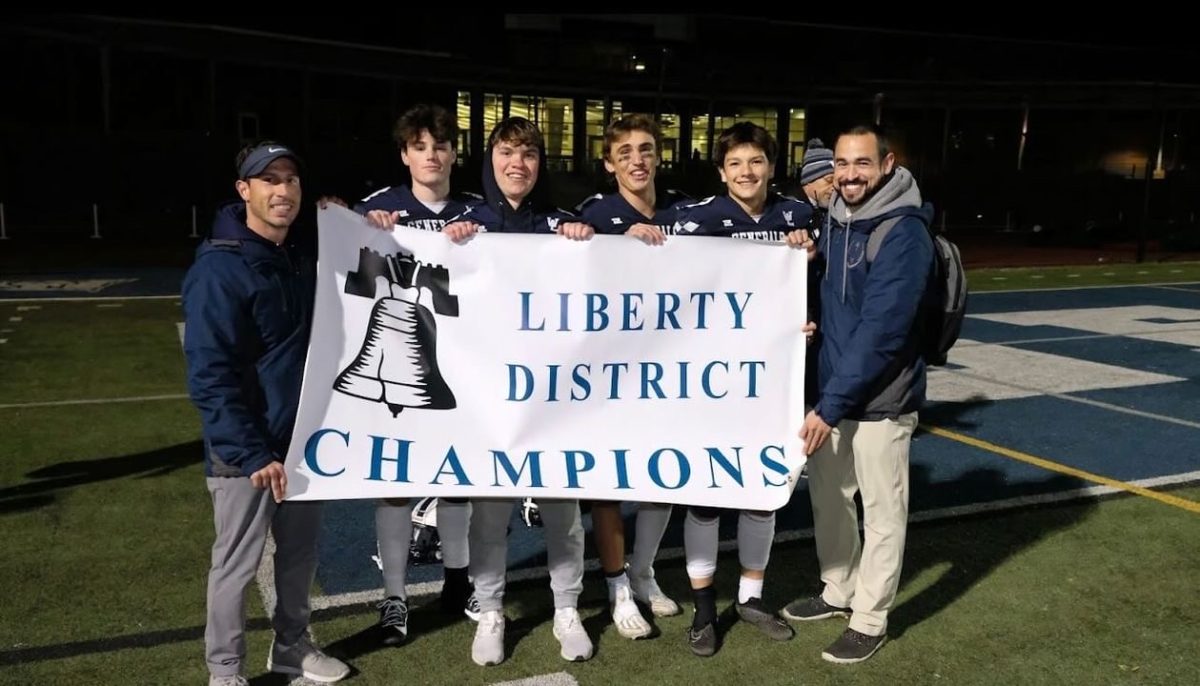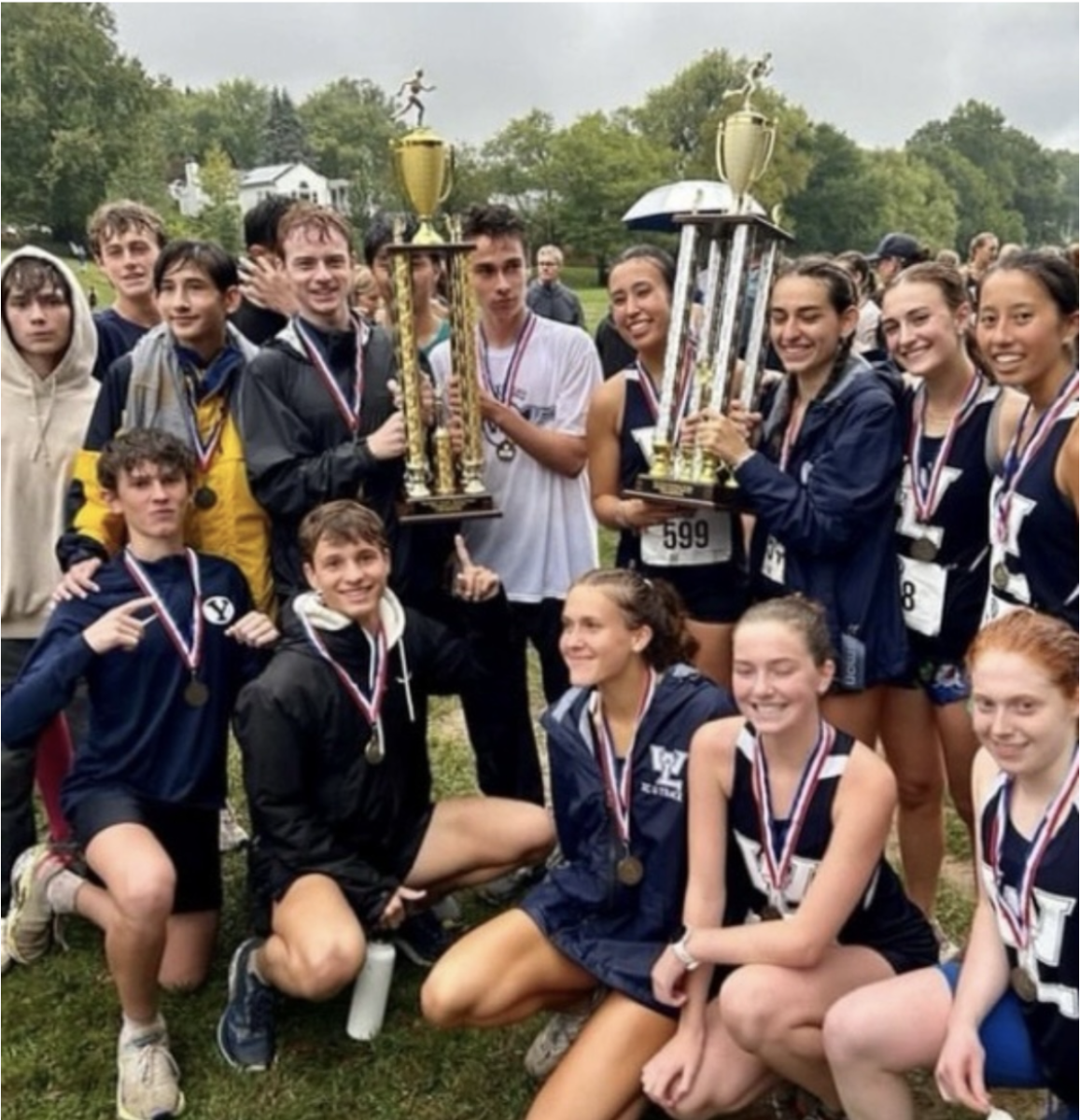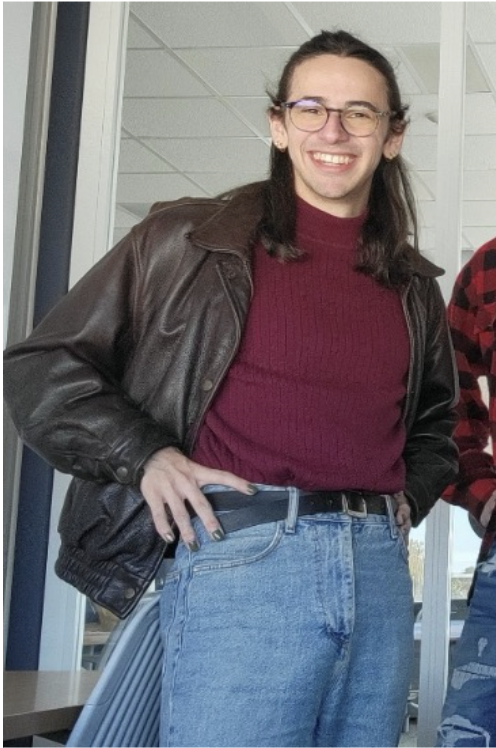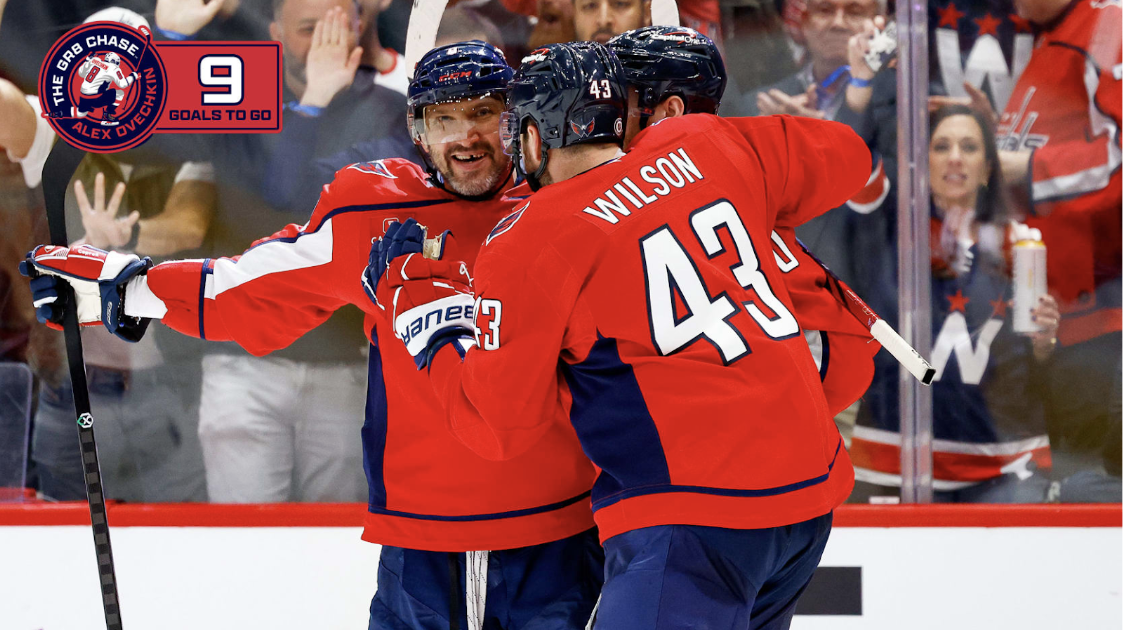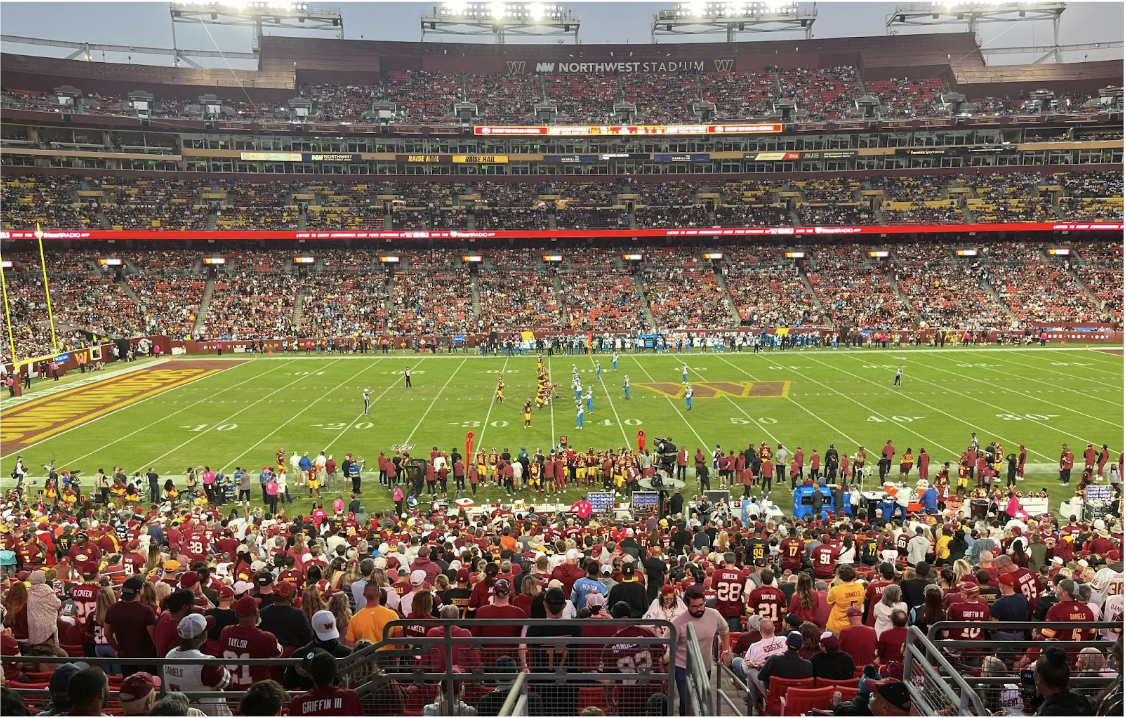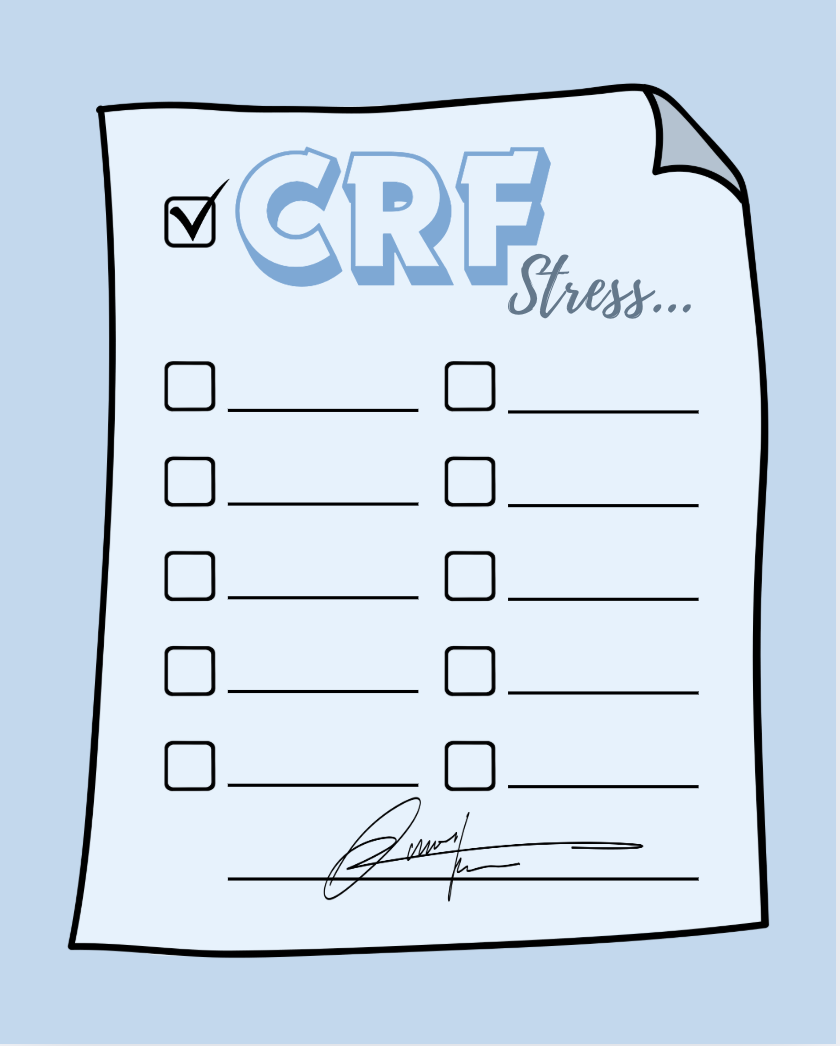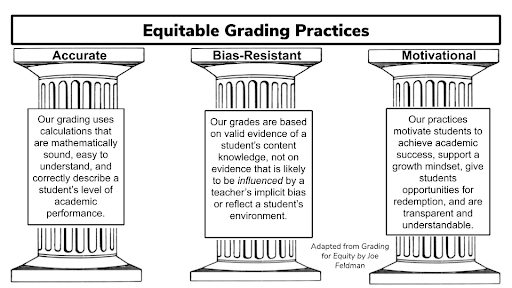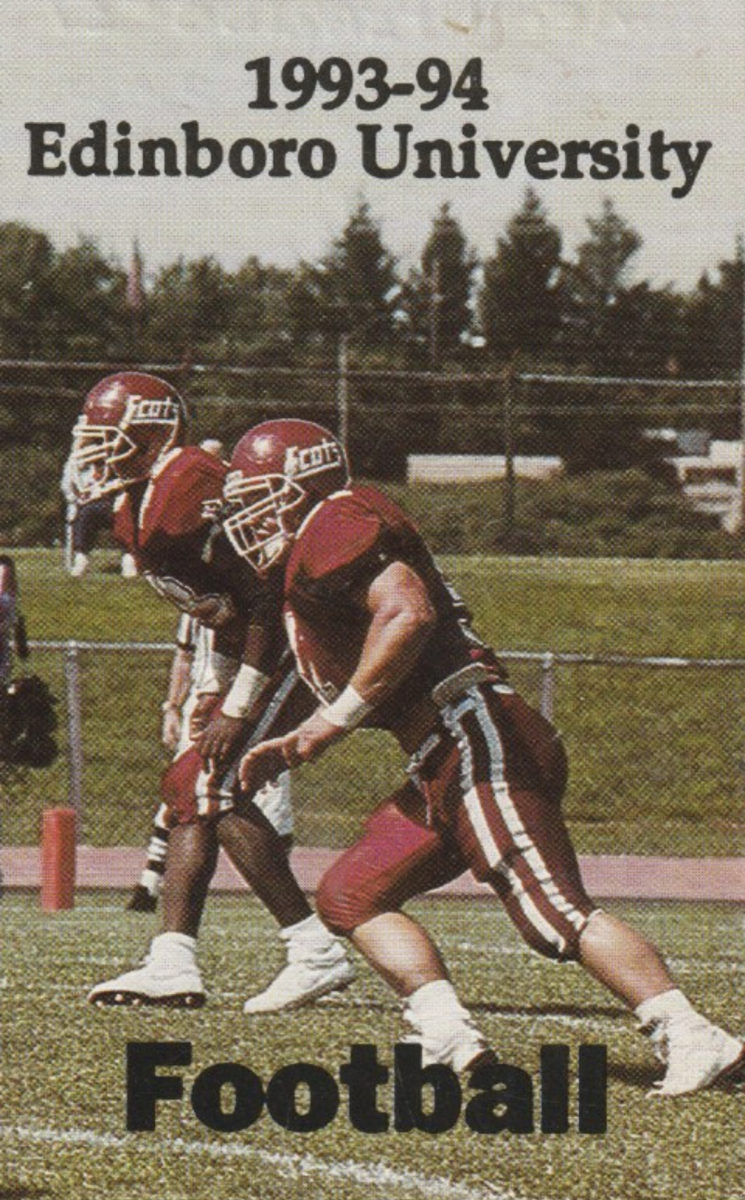Click. You open the college portal to see the results of your years of work. Head in your hands, you wait anxiously for the “view update” button to appear. Will you get into your dream school or get rejected?
That may be true for most students, but that was not true for recruited athletes Danicka Miller, Jackson Nowinski and Luke Harnishfeger.
“I played for Arlington Recreational Soccer, and then I tried out for travel, and I didn’t make it,” junior Danicka Miller said. “I went through developmental teams like ADP (Arlington Developmental Program). [Then] I slowly worked my way up through the travel soccer realm. I was on the fourth team and slowly worked my way up to the top teams.”
After years, she is now on the highest travel team. She has a routine she follows that helps her to improve.
“We have practice every day besides Friday, tournaments, or games,” Miller said. “We travel a lot. And I always try to get touches on my own. [After school I] lift weights.”
She has one piece of advice for someone looking to improve at soccer.
“The boring stuff is the most important stuff, the fundamentals, the other repetitive things that you think are useless,” Miller said. “Those are the things that you use every day. These are the most important things.”
Being recruited is difficult as only 7% of high school student-athletes end up competing in the National Collegiate Athletic Association (NCAA). When it comes to recruitment, Miller had a clear strategy.
“I started really early with ID camps,” Miller said. “I’ve been going to ID camp since going into eighth grade, which was pretty early. I was always one of the youngest at these camps, but I just got my name out there with continuous emails and bugging people until they noticed me.”
ID camps, or identification camps, are a great way to get in front of scouts and coaches. They are camps that you can usually pay for and sign up for. You will play in front of college coaches, and they can evaluate your skill and see if you fit their standards.
“You sign up for it,” Miller said. “You have to pay for it. So it’s not like you get chosen, but you go to schools that you’re interested in. It’s only a day or two…they evaluate you and they can give you feedback sometimes.”
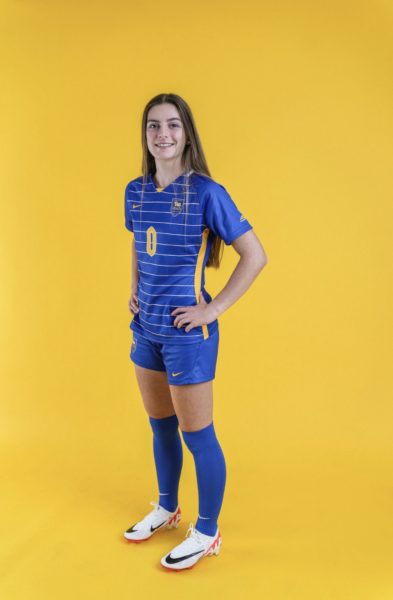
There were also showcases where college coaches would watch her play, and she would receive a list of the schools that had coaches attending the games.
“I would email all the schools that were on the list, because why not get as much interest [in my recruitment] as possible?” Miller said. “Then after ID camps, you create connections, so you can kind of go back to those coaches and be like, ‘hey, we talked at this ID camp [and] I’m playing in these games.’ It was tough, [but] communication is really important.”
The notion of differentiating yourself from all of the other players who are also looking to get recruited is a challenging process.
Multiple sports rely on ID camps for recruitment, including football.
“I filled out some questionnaires, and so I got in contact with a couple coaches, and during some of the breaks, I’d go to [ID] camps, and that definitely helped me a lot,” senior Jackson Nowinski said. “I’d get noticed by some schools. I’d just go to a school and there’s coaches from schools there and they get my name.”
The timing of recruitment for soccer and football is different. Overall, the recruitment processes vary from person to person, even within the same sport.
“For football, it’s a lot of junior year [and] sophomore year when most people start,” Nowinski said. “I started kinda late, which wasn’t great, but I know junior year for me is when I started, and a lot of people do their commitments, sometimes senior year, but the players [that are the most serious] do it earlier.”
Baseball, on the other hand, has an entirely different timeline.
“Usually some of the highest recruited guys will have come in committed to their school by their freshman year [of high school],” senior Luke Harnishfeger said, “But for more average [players], usually they’ll start hearing around the start of their junior year.”
Baseball also has more emphasis on the club level.
“It’s a lot more club [and] travel-oriented,” Harnishfeger said. “There’s a couple of big tournaments throughout the year that [many] schools send coaches to, and you’d be walking around the place and watching players. Every now and then, playing high school [baseball] benefits you, but [they] watch you in person in the summer.”
As a result of the emphasis on the club level, Harnishfeger has always played on travel teams.
“I played for a couple of travel teams in Arlington up until I was about 14,” Harnishfeger said. “Then I branched out and started playing for a team that pulls kids from all over the state of Virginia.”
He tries to work on his hitting every day, his pitching at least three times a week, and strength training by lifting four times a week. The advice he would give to other people who want to improve at baseball is simple.
“Just [be] working every day and always thinking that someone else [might] be outworking you,” Harnishfeger said.
Soccer also relies on scouts watching at the club level.
“[At] one of our games, we were at nationals in San Diego, a huge event and we had probably close to 150 different schools show up,” Miller said. “It’s a crazy environment. [It] just has coaches and little chairs there [with] college hats lining the sidelines.”
The recruitment is different at different ages.
“I think it’s November 1 of my senior year, that’s when you sign and then June 15 before your senior year is when you can start having two-way conversations with coaches,” Miller said. “So before that, I could email them, but they couldn’t email me back. They could just be like, ‘hey, come to an ID camp.’ That was all I could say. Then June 15th, of this year for me, they could then be like, ‘Hey, we’re interested. We like you. Let’s set up a phone call.’ So it’s honestly a very short timeline when people are committing and talking to people.”
Even though they could not converse before June 15, she still heard a little about the interest of coaches.
“They can kind of go through like your club coaches a little bit,” Miller said. “I mean, they can’t be like, ‘Hey, we are so interested in [her]’ or they can’t be that direct about it. They can be like, ‘Hey, we have some interest. Send her to an ID camp.’ But honestly, I had to wait. I just had to wait until June 15th to know that they actually were interested. It was a very stressful time.”
In the end, Danicka Miller chose to go to the University of Pittsburgh to play Division 1 (D1) soccer, Jackson Nowinski decided to go to Bucknell University to play Division 1 (D1) football, and Luke Harnishfeger decided to go to the University of Mary Washington to play Division 3 (D3) baseball.
“I got a lot of interest from somewhat more academic and less soccer competitive [universities], which I also loved,” Miller said. “At the same time, I knew I wanted to be playing the best teams every day, and it’s in the ACC (Atlantic Coast Conference) which is the top soccer conference. So I knew I wanted to be playing the best teams and I felt that Pitt[sburgh] gave me the best, like really good academics but also a great soccer team. So it was the right choice for me.”
She also had another reason she liked the University of Pittsburgh.
“I love the people,” Miller said. “Normally, you think city people are [going to] be rude or whatever, but you walk around and people are just kind and they talk to you and ask how your day is and hold the door open for you. I don’t know, it’s just a very friendly city. And I also like the city but you still have trees and it’s a very integrated environment.”
Although it worked out for all of them, they had some misconceptions.
“I didn’t realize how much work it was going to be,” Nowinski said. “Talking to a bunch of coaches and that kind of thing, it’s definitely a big commitment.”
Miller experienced the same thing.
“Arlington soccer did a great job of providing resources and information,” Miller said. “So, I think I kind of expected a lot of things but I didn’t realize how much work would go into it, like emailing and calling [and] just constantly trying to talk to people and get your name out there. It’s a lot of work that people don’t realize [that there’s] a lot of behind the scenes work.
Harnishfeger echoed that you must get your name out and not let coaches forget it.
“It’s something that you can’t put off,” Harnishfeger said. “You’ve always got to be doing something for it.”
Miller wanted to say one thing to people who also wanted to get recruited:
“Good luck to anyone who’s going through it,” Miller said. “If you’re not in it, it’s hard to realize how difficult it is and how stressful everything is. So shout out to all the unknown people who are just trying to get recognized.”


